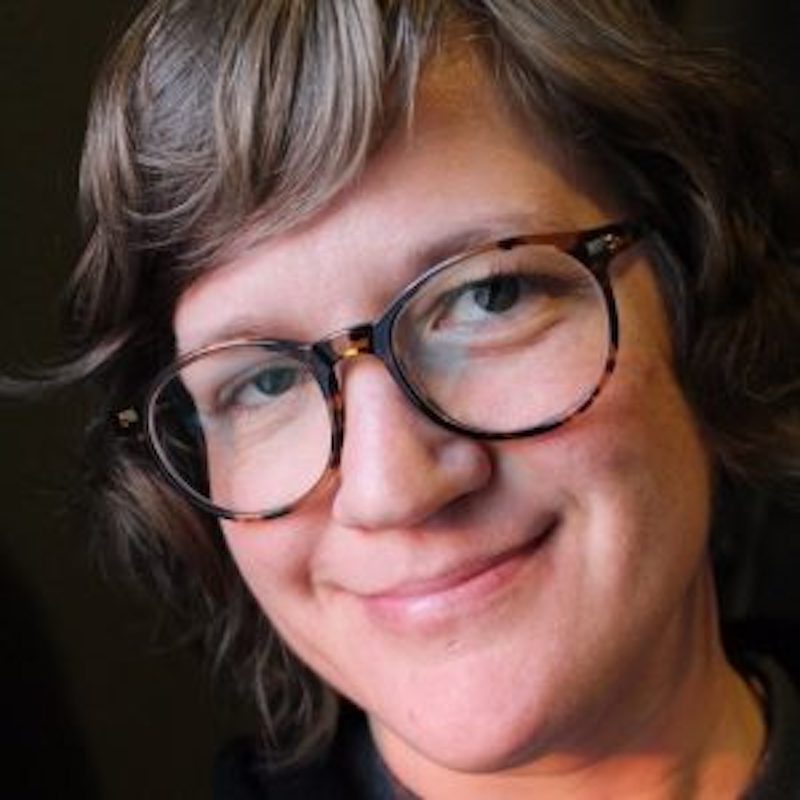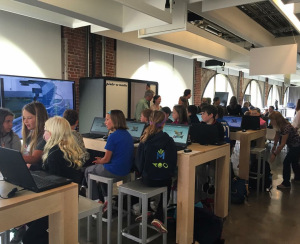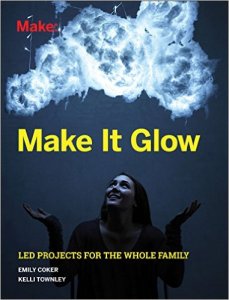
This article originates from Women In 3D Printing and is part of our effort to support the use of 3D printing technology by women. The article is re-published with permission.
Emily Coker is a multipotentialite who is passionate about empowering herself and others through hands-on learning and making. She used her competencies and skills at TechShop and Maker Media. She is now working and prototyping special projects in the Google X lab. No… we are not jealous!
Nora Toure: Emily, could you let us know about your background and what brought you into 3D printing in the first place?
Emily Coker: My background is a unique and diverse puzzle of experiences and jobs. I was working in biotech when I started showing and curating my own art shows in the Bay Area. I wanted to create a creative space that was educational and safe for emerging makers. I eventually left biotech utilizing the connections I made immersing in the art and maker community to join TechShop in San Francisco where I worked as the events coordinator. One of the best perks of TechShop employees is unlimited free classes, I was immediately enamored, and took as many classes as I could in every area of the shop. After TechShop, I was welcomed further into the maker community with Maker Media, the parent of Make: Magazine, Maker Faire, Maker Camp and Maker Shed. I wore many hats at Make: and continued to dive deeper into the community which ended up leading to Google X. With X, I utilize every aspect of making, prototyping and iterating in the special projects lab called Design Kitchen. All of my experiences past and present have edged me into a generalist in most shops and labs.
Nora Toure: What was your very first experience with 3D Printing?
Emily Coker: I took a class at TechShop with a MakerBot Rep 1.. It was the first real hands-on experience I had from learning the software to physically printing. I definitely saw the usefulness that 3D printing would have on manufacturing, designing and prototyping. After my first experience, I started working with many different types of machines, mainly desktop printers, it’s been great seeing how the machines and industry has improved over the years. Lately, I’ve been learning how to run more industrial SLA, SLS and FDM machines, such as Projet, Objet and Fortus. These machines are simply stunning and bring a sophisticated touch to prototyping.
Nora Toure: What is it that passionate you about making?
Emily Coker: I have an insatiable appetite to learn, I wasn’t always like this in my life. In fact, I was a very distracted student in my youth, I was interested in many topics at once and couldn’t focus. As an adult and with the emergence of the maker movement and access to shops, I was able to obtain a unique and self inspired learning experience. Learning new things and utilizing that knowledge daily is a passion in itself for me.
Another aspect that drives me is seeing the results and social impact that makers and making has had on society. It’s extremely gratifying to watch an idea become a tangible concrete reality that betters us and inspires more.
Nora Toure: What was the most impressive or impactful use of 3D printing you’ve seen so far?
Emily Coker: 3D printing used for medical purposes has really struck a chord with me. I’m especially interested in the world prosthesis utilizing 3D printing. The idea that you can make your own lightweight parts with customizing the fit while expanding on purpose and functionality is fascinating. The whole concept is moldable and adapting constantly, with a few electronics and robotics, you can make the prosthesis active and responsive. 3D printed casts are also super impressive. The fact that you can send water through the inside of the cast to stimulate healing will really alter and provoke further change in the way we’ve been healing broken bones and other ailments.

Nora Toure: Do you have any (fun or not) story about your experience in this industry to share with us?
Emily Coker: Some of the best moments I’ve had in the industry is teaching people how to 3D model and print. Recently, I was doing work with the Autodesk Gallery team teaching people how to use Tinkercad and Fusion 360 to design their own 3D models to print. The groups learning are varied in demographics, from kids to adults. I really enjoyed working with kids, kids are just naturals when it comes to using design software and uninhibited to try new things. Nothing can compare to seeing the joy and instant gratification they get in the workshops.
Some not so fun moments would include the post processing that happens with most desktop printers. The supports can be a real pain and cumbersome overall. Things are getting substantially better in post processing yet I can’t seem to shake the trauma of scraping, cutting and sanding material to get the desired finish.
Nora Toure: As a woman maker, what was/ is your biggest challenge? Any challenge specific to the 3D printing industry?
Emily Coker: I’d really like to see more women in the tech industry. I’m starting to see more but we still have a long way to go. Throughout my tenure in the industry, it’s pretty rare to see many women active in 3D printing specifically. I’m not saying it doesn’t exist, being featured here is nice proof. I’ve just had way too many moments in a 3D printing lab where I’m the only woman.

Nora Toure: Anything exciting coming up you’d like us to know about?
Emily Coker: I’ll be speaking at World Maker Faire in New York on several stages. I have a book being released by Make: called “Make it Glow” featuring creative entry level electronic projects in September. If you’re there, swing by and say hi.
Nora Toure: What makes the 3D printing industry particularly interesting for you:
Emily Coker: The rapid advancement of technology is astounding and can only get better and better. Again, I’m really interested in the practical applications of 3D printing in our society as a problem solving tool. I also really enjoy observing how the industry just keeps getting better and better with time.
Nora Toure: As a business person?
Emily Coker: The idea that you can make your designs physically possible through live tangible inexpensive processes is awesome. 3D printing allows businesses to expand and iterate on ideas instantly. The possibilities are endless.
Nora Toure: As a woman?
Emily Coker: The entire 3D printing process opens the doors to creativity for everyone really. I see women getting into the accessibility of the 3D printing industry and running with it.
Nora Toure: What do you think of the 3D printing industry today? And how would you like to see it evolve?
Emily Coker: The industry is constantly evolving and has come a long way in a short time, it’s really exciting. Personally, I’d like to see a more diverse platform of printing in regards to materials that are consistently good. I’d also like to see a solid educational foundation that is not only part of standard curriculum but affordable and sustainable for everyone. It would be amazing to see larger 3D printing companies sponsoring kids in schools with desktop fabrication workshops that not only teach the concept but teach about the machine and maintenance as well as carving a path for the future.
Nora Toure: In your opinion, how could we encourage more women to become involved with 3D Printing?
Emily Coker: Making 3D printers more available in various settings and applications. I have a feeling that people often view 3D printing as overwhelming and too advanced for daily use. Thus creating a far fetched tool and idea. Creating an environment where the tools are available and understandable while showcasing how truly versatile it is would be extremely useful and inviting.
If you are interested in learning more about Emily, I invite you to check her book! If you’re attending the World Maker Faire in New York early October, try to see Emily in one of her speaking sessions.
And don’t forget to join Women in 3D Printing on LinkedIn and Facebook. You can also show your support by donating – Your support will help maintaining the activities of this blog and building more events for the community.
Thank you for reading and for sharing!

